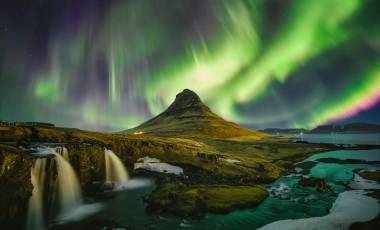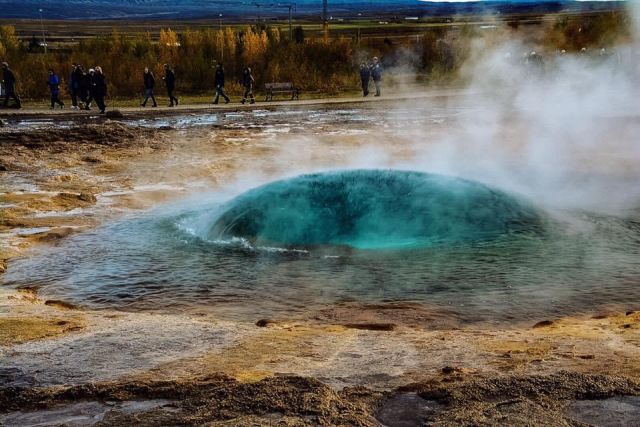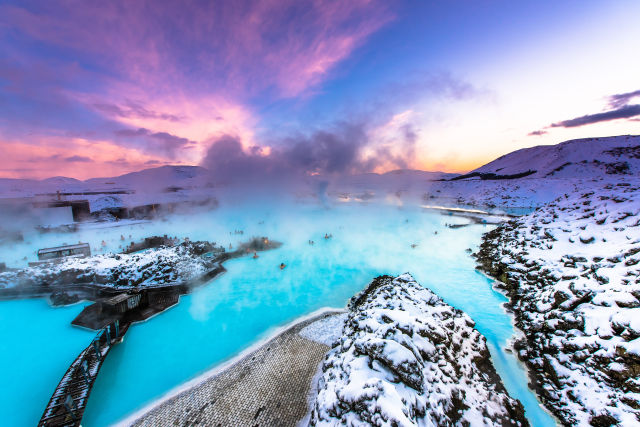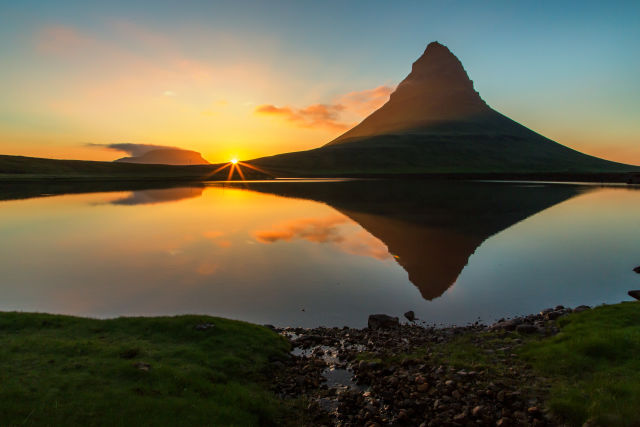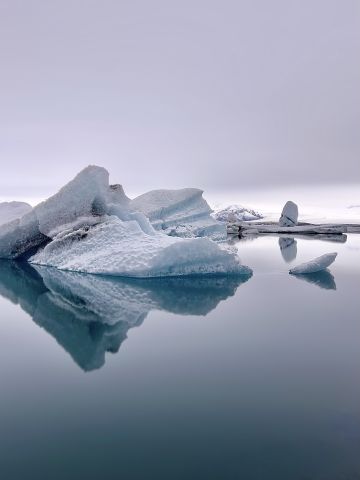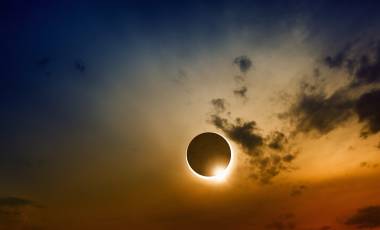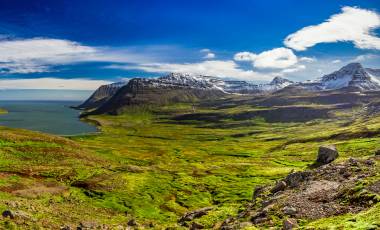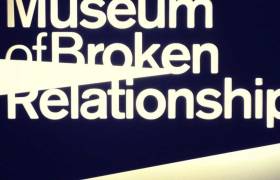Reykjavik is the most northerly city in the world and the gateway to many of the most famous natural sights in Iceland. Surrounded by mountainous peaks and lunar-like landscapes, this is a unique city packed with surprises. There are endless outdoor adventures to enjoy on our Reykjavik tours, from Northern lights trips and glacier walking to bathing in the geothermal waters of the Blue Lagoon. This naturally heated pool lies on the Reykjanes Peninsula and is one of the most popular places to visit on holidays to Reykjavik. Alternatively, explore the city streets to seek out avant-garde architecture, such as Hallgrimskirkja church and the Harpa concert hall.
From October to early March, the Northern Lights can often be seen painting the sky above Reykjavik in shades of pink, green and yellow as they perform their elegant dance. Also known as the aurora borealis, this natural phenomenon will captivate you with its ethereal glow.
The Golden Circle is an unbelievable landscape that incorporates Thingvellir National Park, the Geysir geothermal area and Gullfoss waterfall. These three natural sites combine to form one of the most incredible places to visit on Reykjavik tours.
